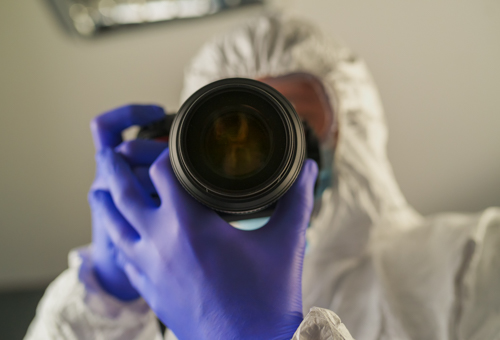


Join us for an intensive training focused on understanding and building relationships between the forensic pathologist, homicide investigator, and prosecutor in successfully investigating and prosecuting child homicide cases. Learn autopsy protocols, forensic essentials, and the criticality of determining the cause and manner of death. Understand the unique aspects of investigating a child homicide including interviewing and interrogation, suspect pool development and the role and importance of the prosecutor in gaining appropriate convictions.

Examine suspicious death case studies based on the experiences of a homicide detective and forensic pathologist. Identify key scene findings, review actual cases and correlate these findings to the autopsy results. This course will discuss improving case outcomes through strong relationships between investigating agencies and the medical examiner’s office. Students will gain appreciation of how unique case features can affect the direction of the investigation. The ultimate resolution of each case examined will be considered and applied lessons learned are shared during the course.

This intensive three-day training program is designed to provide advanced strategies for effectively investigating, supporting and prosecuting domestic violence cases. Participants will gain a deeper understanding of the complexities of domestic violence-related cases, including working with non-cooperative victims, assessing risk, and gathering critical evidence from the start. The course emphasizes practical skills for conducting investigations, victim support, and courtroom preparation. Through expert-led discussions and case studies, attendees will leave with actionable tools to enhance their approach and improve outcomes in domestic violence related cases.

This webinar will provide information for all stakeholders to further mass fatality incidents, human identification cases, and certain missing person investigations. The webinar and subsequent conference plenary session will focus on Rapid DNA technology as an important forensic tool that has significantly influenced the process of addressing mass fatality incidents, and other similar types of investigations. The webinar will be a mix of lecture and case study with briefs on the Palisades and Maui Fire cases. Also presented will be how technology can further Missing/Unidentified Person cases, and provide a template for how detective and medical examiners/coroners can work together on these types of cases. This webinar will briefly cover the different ways agencies use Rapid DNA and a new innovative program from ANDE for agencies that want to use it, but do not currently own the technology.

Explore strategies for conducting death investigations that occur from several origins. Learn how to evaluate the crime scene, conduct effective interviews and interrogations, develop case leads, utilize investigative resources (crime laboratories, medical examiners), and comprehend medical autopsies.

Explore strategies for conducting comprehensive sexual assault investigations. Learn how to support victims, gather and maintain evidence, manage crime scenes, conduct effective interviews and interrogations, utilize investigative resources (SANE nurses and support services), and prepare cases for prosecution.

Improve investigative techniques and prosecutorial efforts needed to successfully decipher unresolved and cold cases. Explore essential investigative, forensic and prosecution methodologies through the dissection of actual cases, best practice examples, interactive discussions, and contemporary resources. Learn proven strategies to avoid complications that are detrimental to the prosecution of cold cases. Discuss practices relevant to the establishment and maintenance of an efficient cold case unit.

Join us at this national conference, which focuses on identifying innovative and effective technologies, approaches and strategies in the search, investigation, identification, recovery, and reunification of missing persons, regardless of the circumstances surrounding their disappearance. You will gain knowledge and proficiency in evidence-based, state-of-the-art, and collaborative solutions, and explore tools and techniques from the initial response through recovery and resolution, vital to the missing and their families. The conference will also examine the complex and multifaceted nature of missing person cases and the unique needs of vulnerable population groups such as aging individuals, persons with differing abilities, indigenous/native populations, victims of trafficking, veterans and active military, transient populations, and others.

Provide participants with the knowledge and tools to better serve victims of crime. The goal of this conference is to provide examples of positive victim assistance programs as well as resources for multidisciplinary approaches to serving victims of crime. Attend this conference to build upon your services and systems to best fit the needs of our communities.

Have you heard about Financial Sextortion? Do you understand why youth are so vulnerable to sextortion? Do you know what resources and support you can offer victims and families? Dana Miller shares three critical points that are crucial when responding to a sextortion incident, and when helping a child or family where a minor has been a victim of sextortion.
